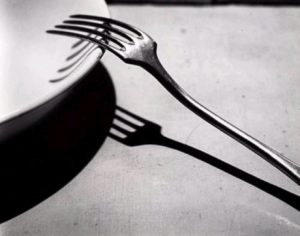Intermittent fasting is a fast undertaken for a short period of time which might vary from skipping a meal to not eating for a few days. Many people think of fasting in terms of either weight loss or spiritual devotion. I use fasting primarily for its healing effect on the body.
People fast in different ways and the word means different things to different people. Some drink juice during their fast and some even consume small amounts of food.
I have been experimenting with fasting for the past year and a half, fasting one day a week for 36 hours and consuming only water during the fast. In this post I’ll discuss what I’ve learned and share some guidelines for those considering intermittent fasting.
WHY INTERMITTENT FAST?
Why would someone purposely forego eating? It turns out there are some substantial health benefits. Research has shown calorie restriction to;
- reduce cholesterol, LDL, and triglycerides levels while raising HDL
- lower blood pressure
- reduce body fat percentage
- significantly extend lifespan
- improve blood sugar regulation
Fasting has a long history as a healing practice. It’s healing results are documented by many doctors who operate fasting clinics;
- to promote healing
For me personally, one of the greatest benefits I have realized is;
- control of emotional eating
EMOTIONAL EATING
Amazingly you will quickly discover you can fast without feeling hungry. This should be qualified by saying you will only have this experience if you have been eating a whole foods diet for an extended time. While you will be able to forego food for a day without hunger, it doesn’t mean you won’t desire food. You’ll also quickly discover that you often want to eat for reasons that have nothing to do with hunger.
Food creates the release of “feel good” chemicals in our bodies. You may discover that you self-medicate unpleasant emotions with food. This will become glaringly obvious when you are foregoing eating for a day. How many trips to the snack machine are motivated by frustration or boredom? This is a great learning experience and as you build some experience with fasting you’ll discover your ability to recognize this emotional eating will improve dramatically. As you recognize this emotional eating for what it is you will develop much greater control over it.
Personally I feel you need to fast for at least 24 hours to obtain this experiences. Skipping a meal simply doesn’t put you to the test. Waking, not eating all day, and going to bed without food will give allow you to confront and overcome a host of emotions without placating them with food.
FASTING AS A PHYSICALLY HEALING PROCESS
Although you’ve probably never considered it, digestion is a very energy intensive process for your body. It can take from 24 to 72 hours for your body to completely breakdown, digest, and eliminate the food you eat. When your body devotes it resources to digestion, it has less resources to devote to healing.
Remember that your body is always involved in healing. That’s what it does. Cells are constantly being repaired and replaced. Your body never takes a break. A fast relieves your body of the need to devote resources to digestion and therefore it can expend a greater effort on healing processes.
REASONS NOT TO INTERMITTENT FAST
- you currently eat a poor diet
If you’re eating a standard American diet (SAD) don’t consider fasting until you’ve cleaned up your diet and have maintained that eating style for several months. The multitude of benefits from fasting are unavailable to you if you’re eating processed carbs, refined sugar, soda, diet soda, white bread, hydrogenated oils, high fructose corn syrup, and all of the other fake foods found in your supermarket. If that’s how you’re eating your body is under tremendous stress trying to cope with the lack of nutrients and flood of toxins you’re feeding it daily. You will reap more benefits from improving your diet than you will from attempting fasting.
- to lose weight
Permanent weight loss can only be achieved through a permanent change in dietary habits. Starving yourself will only throw your body into survival mode and it will slow metabolism to conserve resources. If you currently eat a poor diet then your blood sugar regulation will be very poor and you’ll suffer serious hunger while on the fast.
- You have low blood sugar
- You are pregnant or breast feeding
- You are suffering from emotional issues
- You take prescription drugs or have a serious illness
ENDING THE FAST
Returning to solid foods should be done gently. Do not overload the stomach. Progress from easily digested foods to more challenging foods gradually. If you are fasting just for one day then one to two lighter meals should get you back on track. Listen to your body.
The body is a wonderful servant but a very poor master. Fasting will make you the master of your body.
This post is part of Fight Back Friday, Monday Mania, and Real Food Wednesday.
Photo 1, Robert Nine Photos, 2009, https://picasaweb.google.com
Latest posts by Peter Wright, NTP, CGP (see all)
- Dehydrated Broth – Making It Easy to Drink Broth Every Day! - March 11, 2017
- Lose 10 lbs DURING the Holidays - November 19, 2016
- Finding Good Oils - February 7, 2016



We are big proponents of fasting at our house. I’ve been pregnant/breastfeeding for over 2 years now, so I haven’t been able to fast. I actually miss it. I believe it is one of the best things to do (when done properly i.e. easing into the fast) when trying to change your diet because it helps you realize how addicted you are to the junk!
So glad you said this:
If you’re eating a standard American diet (SAD) don’t consider fasting until you’ve cleaned up your diet and have maintained that eating style for several months.
When I was on a SAD diet I would have fallen over (literally) from hunger.
Today I could do it if I want to, but it’s taken about a year and a half of good eating (meat and fat) to make that happen.
I haven’t made the decision to IF yet, but I will soon.
Thanks for sharing!
I’d have to agree with this comment from Marks Daily apple…………..
Of course, my own feeling is that fasting is both easier and more effective if you have made the transition to a Primal Blueprint way of eating. In other words, when you have up-regulated those fat-burning systems and down-regulated the reliance on glucose, many of the other issues that can make fasting less appealing to “sugar-burners” tend to go away: cortisol levels out, muscle protein is spared, hunger subsides naturally and energy is steady.
Read more: http://www.marksdailyapple.com/fasting-cancer/#ixzz1phznwlsI